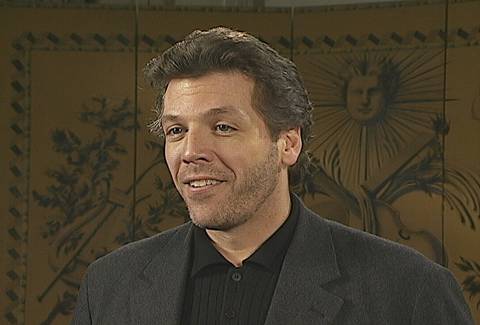|
<< -- 4 -- Tess Crebbin LIFE MATTERS

'Isn't it amazing that Mahler, in the deepest corner of his music making, is actually posing these contradictions of life?', Starr asks. 'And he leaves us there with it. Take that! There is no way around it, we need to face it, whether we like it or not. And then go on from there, but not by ignoring it. He is throwing into our face things that, especially in our modern time with its fast-paced life, we would rather not think about. He knew that something was being lost with modernity and that it was going to be irretrievable. I think it is important that he preserved in his art not only what was going to be lost, but also the very act of the loss itself. It is a very timely symphony because it is very ecological. It places each one of us within the fabric of life and places responsibility on us individually to preserve the world for other beings, be it animals or plants. Where would inspiration come from if there was nothing out there?'
Then there are the illuminating interviews, with Mahler biographers, with Henry-Louis de La Grange, with philosophers, as they in turn contemplate the Third. And, of course, there is the inevitable Thomas Hampson, a true Mahler nut who always pops up whenever there is a chance for collaboration on a work to bring the wonder of Mahler closer to people. Hampson, a Mahler researcher when his schedule allows, has a profound insight into the life and works of this particular composer.

Thomas Hampson. Photo © Video Arts International
|
'I chose Hampson because he is one of the world's foremost interpreters of Mahler Lieder', Starr explains. 'Several years ago he sang the complete cycle of Mahler Lieder for voice and piano at Carnegie Hall and I think everyone who attended was deeply impressed. I was looking for someone who could illustrate the connection between the third movement of the symphony and the song that is quoted in it. Thomas Hampson so kindly agreed to perform it for my cameras and it was an incredibly generous donation on his part. In doing this documentary, I found that the Mahler crowd is made up of a group of wonderfully generous and kind people. Thomas Hampson is a real superstar in the opera world now. For him to not only take the time to allow me to interview him but also to perform for my film is an act of generosity, not only towards me but toward all who will view this film. It also indicates the depth of his commitment to Mahler's music.'
The documentary is narrated by the Emmy-award winning actress Stockard Channing who has come a long way since starring in Grease with John Travolta. How did she become involved? 'She is a Mahler fan,' explains Starr. 'I decided to ask her to participate when I read an interview with her where she was asked what she would be if she had to live her life all over again. And she said: a composer.'
Jerry Bruck, a recording engineer with a speciality in classical music, was also part of the deal. And does he ever have good Mahler references: In 1962, he met Mahler's widow, Alma, and helped convince her to lift her ban on completions of Mahler's Tenth. He then began a lasting friendship with Mahler's daughter, Anna. Bruck is a founding member of the Gustav Mahler Society in New York and of the International Mahler Society in Vienna. He was directly responsible for the release of the suppressed first movement of Mahler's cantata Das klagende Lied and he assisted with the US première of Mahler's Tenth. He also produced and engineered the first commercial recording of Mahler's five-movement Symphony No 1 (with Blumine) for CBS/Odyssey. In 1971, he was awarded the Mahler Medal of the Bruckner Society of America.
Continue >>
Copyright © 16 June 2004
Tess Crebbin, Germany

|

